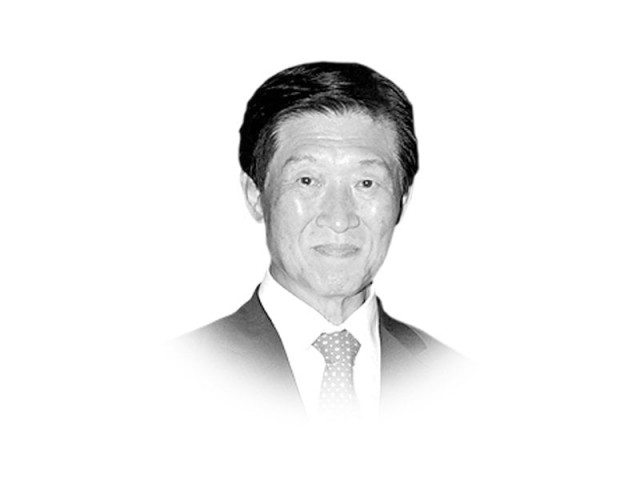The miracle of the Indus
Pakistan is strategically located, with land connections between South Asia, Central Asia, China and Middle East

The writer is Ambassador of the Republic of Korea to Pakistan
Prime Minister Nawaz Sharif’s government and the military are jointly committed to the National Action Plan to wipe out terrorism and extremism from the country. However, this is going to be a long-drawn process. Because of media coverage on terrorist activities, Korea has understandably failed to notice its long-standing relationship with Pakistan, the glorious Pakistani culture and the country’s immense potential. Not many in Korea would know that Pakistan has world heritage sites, such as the ancient city of Mohenjo Daro, or the ‘Mound of the Dead’, which represents the Indus Valley Civilisation, one of the four major civilisations of the ancient world.
The relationship between the regions that now make up Korea and Pakistan can be traced back 1,700 years. The monk Maranatha travelled from Lahore to Korea, through China, to spread Buddhism in the Baekje kingdom in 384 AD. The 8th century monk Hyecho from Korea wrote a travelogue called Memoirs of the pilgrimage to the five kingdoms of India. Out of the five kingdoms, three are located in the regions of Peshawar, Gilgit-Balitistan and Kashmir.
Pakistan provided us with food and medicine aid amounting to $300,000 during North Korea’s invasion in 1950. Furthermore, when we were trying to set up our first five-year economic development plan, the then secretary of development planning in Pakistan advised our experts on economic development.
From the end of the Second World War up until now, around 140 countries have gained independence. Of all these countries, Korea was the first to change from an aid-recipient country to a donor country. Korean per capita income in 1960 was less than $80, but now it is more than $28,000. Korea’s trade volume has been more than $1 trillion since 2011. This progress is called the “Miracle of the Han River”. The Pakistani government and its people, whose per capita income in 2015 amounts to $1,513, want to learn from Korea’s success and promote trade and ties between the two countries. As the Korean ambassador to Pakistan for the past two years, I am convinced that Pakistan can achieve the “Miracle of Indus River” if the country follows the same path as we did earlier. This can happen if the world, including Korea, understands Pakistan’s huge potential.
Pakistan hosts the world’s second highest mountain in its northeast, and fertile agricultural land in the centre and south. It has an irrigation system spread across the country from north to south along the Indus River. Geopolitically, Pakistan is strategically located, with land connections between South Asia, Central Asia, China and Middle East, and is close to the naval entry point of the Persian Gulf. Its population is the sixth largest in the world and is estimated to be almost 190 million, with almost 100 million youth, many of them conversant in English with good computer skills. Furthermore, its land area is 3.5 times more than that of the Korean peninsula, it is rich in mineral resources and its production capacity in cotton, milk and wheat is at world class level.
After President Park Geun-hye and Prime Minister Nawaz Sharif met on the sidelines of the 70th session of the UN General Assembly on September 27, 2015, the secretary of the Economic Affairs Division and I signed the 2015-17 Economic Development Cooperation Fund Framework Agreement amounting to $500 million, on October 2. I am fully convinced that Pakistan will achieve the “Miracle of Indus River” by learning from the Korean experience of Saemaul Undong (the New Village Movement). Pakistan will be the emerging blue ocean market for us, with Korean Air flying to the country and the export of Korean automobiles to the Pakistani market. With this dream, no matter how dangerous the prevailing circumstances, we hope to continue making our best efforts to promote economic activity between Pakistan and Korea.
Published in The Express Tribune, December 11th, 2015.
Like Opinion & Editorial on Facebook, follow @ETOpEd on Twitter to receive all updates on all our daily pieces.















COMMENTS
Comments are moderated and generally will be posted if they are on-topic and not abusive.
For more information, please see our Comments FAQ